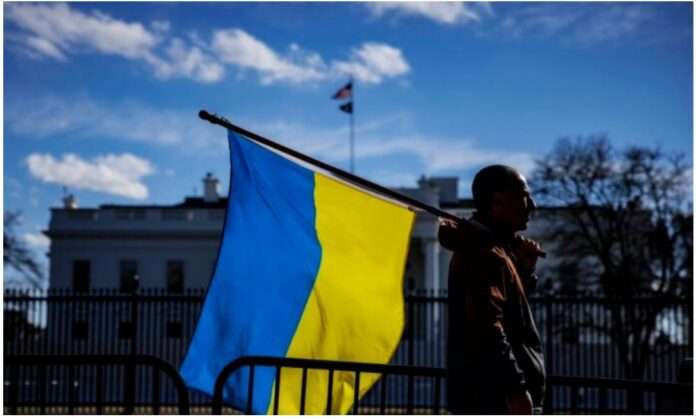Ukraine is pleading for Australia to supply coal to help avoid blackouts and prepare for heating amid the upcoming winter.
The ambassador of Ukraine to Australia, Vasyl Myroshnychenko, raised concerns that winter could kill more people than Russian missiles.
Defence Minister Richard Marles has reaffirmed his commitment to supporting Ukraine without mentioning coal, noting Australia has provided more than $1 billion (US$667 million) in support overall, including $880 million of military assistance.
Meanwhile, Coalition Shadow Foreign Minister Simon Birmingham described the request from Ukraine as urgent, having made a plea to the government to provide support back in January.
Mr. Myroshnychenko, speaking on ABC television, noted providing coal is a survival issue.
“Ukraine needs an all-year-round supply of thermal coal, and for us, it’s not a choice, it’s rather a lifeline … While Russians are killing us on a daily basis, winter is going to kill more people and winter is coming,” he said.
“It’s also a matter of producing electricity which is necessary for the defence industry to make sure that we can keep on going, that our economy can keep on operating, so it’s a matter of survival for us.”
Marles Defends Australia’s Support for Ukraine
In response to questions about whether Australia is providing coal, Mr. Marles said Australia is in constant contact with Ukraine about providing support in the most “practical way.” He did not mention coal specifically.
“It also needs to be practical, and we are talking with Ukraine about how best we can do that. Now, from time to time, one item or another will end up in the media and it will gain attention.”
“But what we’re doing is focusing on our conversation with Ukraine about how the support that we can provide can be done in the most practical way, and that is the guiding light in terms of how we go forward with our support with Ukraine.”
Mr. Marles said Australia is focussing on a range of contributions, including integrated air and missile defence.
“The drone coalition was a key issue for Ukraine—when you go there you realise the extent to which this conflict is now being fought out with drones. We’re participating in the drone coalition that’s being led by Latvia and the United Kingdom—that was a key ask on the part of Ukraine. Ukraine has, as you would imagine, needs across the board,” he said.
The defence minister said that Ukraine has an “enormous sense of gratitude” for the support Australia has been providing given it is not a NATO nation, adding “We have been there from the get-go and we will be there until the end.”
Shadow Foreign Minister Simon Birmingham said the request from Ukraine needs to be treated with real urgency, noting, “This is a war.”
Australia Recently Pledged $100 Million to Ukraine
During a recent visit to Ukraine, Mr. Marles announced $100 million of extra help for the worn-torn nation.
While in Ukraine, Mr. Marles met with Ukrainian Prime Minister Denys Shmyhal and witnessed the cost of Russia’s attacks on the nation.
In terms of military assistance, $30 million has been allocated to aerial systems, while another $15 million is slated for combat helmets, rigid hull inflatable boats, boots, fire masks, and generators.
Coalition Had Called on Government to Provide Coal
Mr. Birmingham and Shadow Defence Minister Andrew Hastie called for the Australian government to respond to Ukraine’s requests for coal in late April.
The ministers noted this request should already have been agreed to and must be committed to “promptly.”
“Ukraine’s fight is not just for their nation, but also in defence of democracy, sovereignty and a rules-based order that Australia also relies upon,” Mr. Birmingham and Mr. Hastie said on April 28.
“Since establishing Australia as the leading non-NATO country contributor to Ukraine’s defence, the Coalition has consistently supported further assistance, while urging the Albanese government to maintain a leading approach.”
In addition, a duty exemption for Ukrainian goods has been funded in the Home Affairs budget at a cost of $2 million over two years until July 3, 2026.







